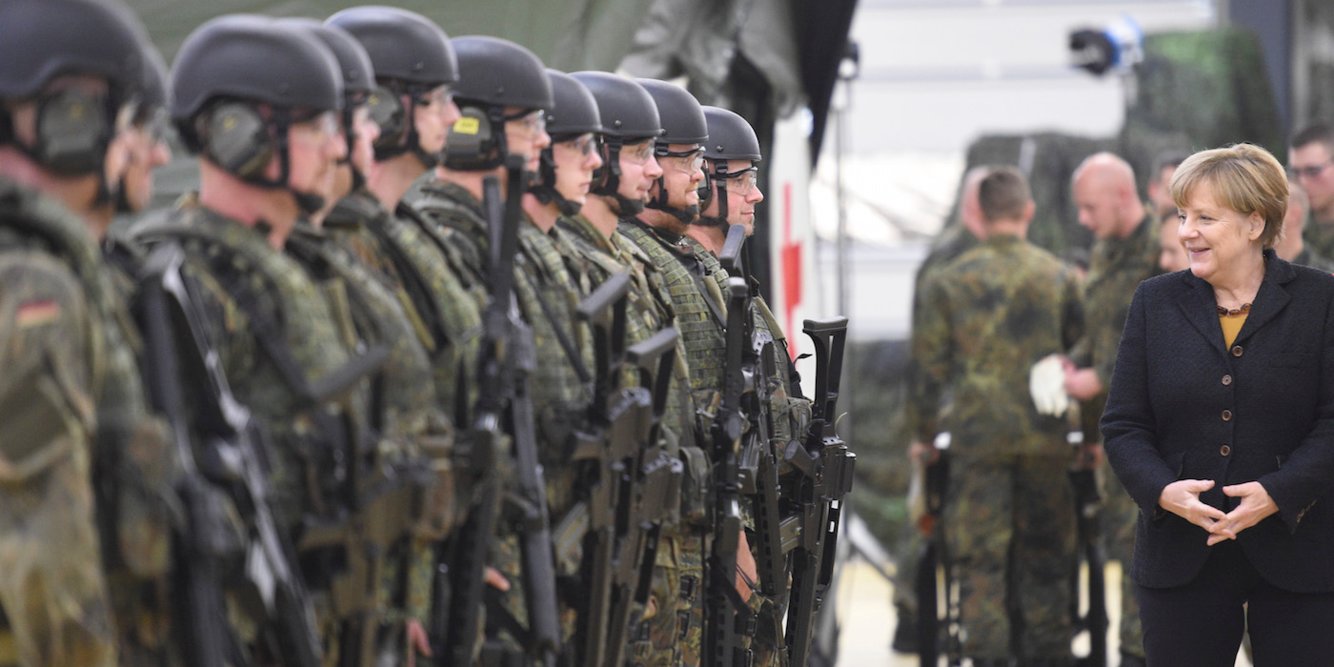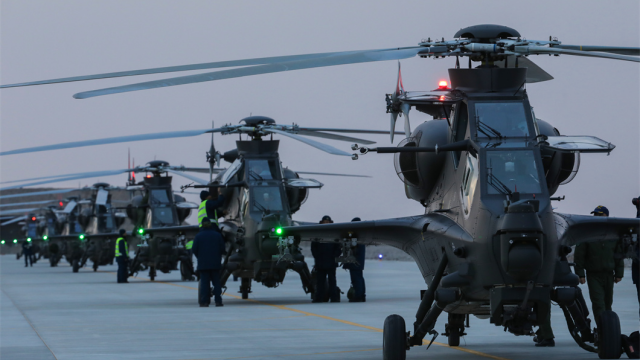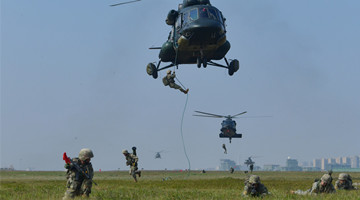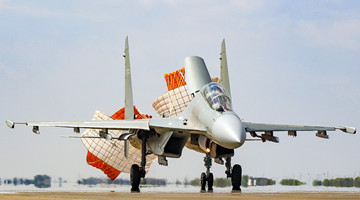
German Chancellor Angela Merkel meets members of the German armed forces at an army barracks in Leer, Ostfriesland, Germany, December 7, 2015.
Some analysts believe that Germany is committed to playing a more proactive role in the international arena, especially assuming a leadership role within the framework of the North Atlantic Treaty Organization (NATO) and European Union (EU). This month, Germany generously sent 5,000 soldiers to the NATO Response Force (NRF), while the Netherlands, Norway, France, Belgium, the Czech Republic, Latvia, and Lithuania only contributed a total of 3,000 soldiers.
To guarantee good combat readiness of the NRF, the Procurement Office of the German Federal Ministry of Defense announced last month that it had signed a contract worth $110 million with a private transport group to provide rail transport services to the NRF. The NRF aims to complete operational preparations in any war zone within 48 to 72 hours, and takes Russia as its primary imaginary enemy.
However, it remains to be seen whether Germany can make it happen with the United States as its largest obstacle. The German media concluded six major disagreements between Germany and the United States, that is, Iranian nuclear deal, trade deficits and tariffs, defense budgets, environmental protection, refugees and immigrants, and the Russian-German pipeline. At the NATO Summit in November last year, US President Donald Trump’s criticism of Germany was notably fierce. He accused Germany of failing to meet the 2% ratio of defense spending to GDP, saying that it will undermine NATO security and has set bad example for other countries.
Forsa-Institute, Germany's largest polling institute, recently released a survey showing that 56% of the Germany's population regarded Russia as a top threat, followed by 55% considered the United States as a threat. This result indicates that a rift between Germany and American has become startling. German scholars on international affairs pointed out that considering the increasingly serious global crisis and the ever-deteriorating German-American relations, Germany’s get-tough attitude in European defense can only make Russia get advantage from the confrontation.
Apart from being "oppressed" by the United States, Germany also faces many domestic issues. German military critic Christine Moore pointed out that the German Bundeswehr, Federal Defense Force of Germany, is experiencing the weaponry shortage and chaotic management. Under such circumstances, the increasing costs on the NRF will further undermine the combat readiness of the Bundeswehr. Moreover, how to deploy NRF is another issue they must face. However, the Bundestag (German federal parliament) and the German government lack consensus in this respect. In case of any conflict, the bickering between the two sides will powerfully paralyze the supposed quick response.
NATO held Trident Juncture 2018 in Norway from October to November last year, which is the largest military exercise since the end of the Cold War. Germany sent 10,000 officers and soldiers and 4,000 vehicles to the exercise, with a cost totaling about 90 million euros, which showed its intention to take over the leadership of the NRF and even assume greater responsibilities. That caused wave of harsh criticism within Germany. The left-wing parties in the Bundestag held that "the show of strength tends to escalate the situation in Europe further and the most urgent matter now is to put forward bold disarmament initiatives and implement arms control forward rather than conduct offensive military exercises".
Disclaimer: The author is Er Dong. The article was published on the China's National Defense newspaper on January 11. It is translated from Chinese into English and edited by the China Military Online.









